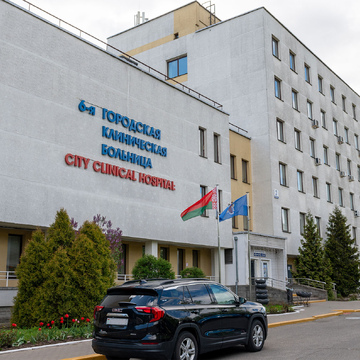
An immunogram is a comprehensive blood test that allows you to assess the state of the human immune system. An immunogram helps to identify disorders in the immune system, diagnose immunodeficiency conditions, autoimmune diseases, chronic infections and assess the body's response to treatment.
Indications for conducting an immunogram
An immunogram is prescribed for the following indications:
- Frequent infectious diseases. If the patient is prone to frequent and long-term infections (viral, bacterial, fungal), the doctor may prescribe an immunogram to assess the state of the immune system.
- Suspected immunodeficiency. An immunogram can help identify primary and secondary immunodeficiencies that may result in a deficient immune response and increased susceptibility to infections.
- Autoimmune diseases. If there is a suspicion of autoimmune diseases, such as rheumatoid arthritis, systemic lupus erythematosus or multiple sclerosis, an immunogram helps to assess the activity of autoimmune processes.
- Chronic inflammatory processes. Chronic inflammations that are difficult to treat may be associated with disorders in the immune system, which requires additional examination.
- Assessing the effectiveness of immunomodulatory treatment. Patients receiving treatment with immunomodulators or immunosuppressants may undergo an immunogram to assess the body's response to therapy.
- Preparation for surgery and organ transplantation. An immunogram is used to assess the state of the immune system before transplantation or major surgical interventions.
How is an immunogram test performed?
The procedure for taking an immunogram test is standard and includes the following steps:
Preparation:
- The patient is advised not to eat food for 8-12 hours before the test (i.e. the test is performed on an empty stomach).
- The day before the test, you should avoid alcohol, smoking and physical activity.
- If the patient is taking immunomodulatory drugs, the doctor may recommend temporarily stopping them to get accurate results.
Blood donation. Blood is taken from a vein in a laboratory setting. In some cases, several blood tubes may be required for analysis, as the study includes many indicators.
Laboratory testing. Blood samples are sent to a laboratory where immune system parameters are determined using various techniques such as flow cytometry, enzyme immunoassay, and others.
Immunogram indicators
The immunogram includes a large number of indicators that evaluate both cellular and humoral (antibody) immunity. The main indicators of the immunogram include:
Cellular immunity:
- T lymphocytes (CD3+ cells) are important for cellular immunity and infection control.
- T-helpers (CD4+ cells) - regulate the immune response and help activate other immune cells.
- T-suppressor/cytotoxic cells (CD8+ cells) - destroy infected cells and control the activity of the immune system.
- The CD4/CD8 ratio is a measure used to assess the balance of the immune system.
- NK cells (natural killers) - destroy virus-infected cells and cancer cells.
- B-lymphocytes (CD19+ cells) are responsible for the production of antibodies and humoral immunity.
Humoral immunity:
- Immunoglobulins (IgA, IgM, IgG, IgE) are proteins that fight pathogens. Their level shows the activity of the antibody-mediated immune response.
Specific antibodies - can be measured in response to specific infections or vaccines to assess the specific immune response.
Cytokines and inflammatory mediators:
- Interleukins (IL-1, IL-6 and others) regulate inflammatory and immune responses.
- Interferons (IFN-α, IFN-γ) fight viruses and participate in the modulation of the immune response.
Phagocytic activity:
- The ability of neutrophils and macrophages to absorb and destroy pathogens is assessed. This indicator allows for the detection of defects in innate immunity.
The results of the immunogram are interpreted by an immunologist. It is important to understand that each indicator must be considered in the context of the clinical picture and other tests, since individual deviations may have different causes.
An immunogram in Belarus is an informative analysis that helps doctors assess the state of the immune system, identify immunodeficiencies, autoimmune and inflammatory processes.



